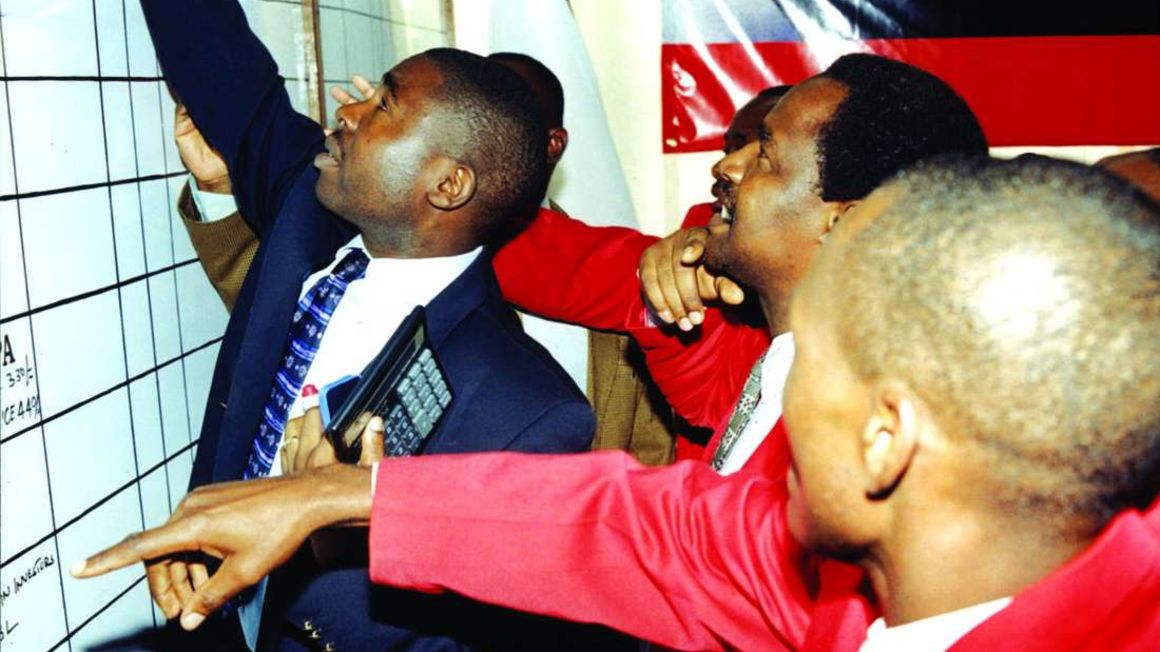Three East African countries have joined forces to implement a World Bank-funded financial project that aims to connect regional stock markets electronically. This means they can operate as a single market with a view of reducing the cost and time of trading in shares of companies listed on markets across the borders.
Uganda, Rwanda and Tanzania are set to start trading as a single market before the end of this year (2020) after interconnecting their trading systems and hooking to the EAC Capital Markets Infrastructure (CMI) Information Technology platform.
Investors in the three countries will buy and sell shares of companies listed in any of the countries without going through different stockbrokers.
Currently, Ugandan stockbrokers take the largest share of stock trading commission at 3.28 per cent of the value of the transactions, not only within East Africa but in the entire African continent.
In Rwanda and Tanzania brokerage commission on equity trading are regulated at 1.5 per cent while in Kenya the applicable commission is limited to Ksh100 (1$) for odd-lot transactions up to Ksh3,000 ($30) and 1.8 per cent for odd-lot transactions in excess of $30.
The East Africa Securities Exchange Association (EASEA) said the project that has dragged for more than five years largely due to payment dispute with the software provider and lack of integration between CMI software and the trading systems of the participating states — Uganda, Tanzania and Rwanda — will remove obstacles on stock trading in regional markets, spur activities and boost liquidity in underperforming markets once operational.
“We are doing the final testing on our system for the CMI project. We are ready psychologically and technically we are working on those technicalities that are remaining. On the other hand, Tanzania and Uganda are technically ready,” Celestin Rwabukumba, the association’s chairman and Rwanda Stock Exchange CEO told The EastAfrican.
“Everything should be ready by the end of this month and then we agree on the time of the launch because 95 per cent of the work has been done. The launch cannot go beyond December because we cannot afford to go beyond that time,” he added.
Pakistan-based InfoTech Private Ltd had been contracted to provide the software connecting the trading platforms of the Uganda Securities Exchange, Dar es Salaam Securities Exchange and Rwanda Stock Exchange to enable them to run as a single market in real-time.
Kenya, which runs the largest stock market in the region in terms of market capitalisation and number of listed companies pulled out of the project in 2015 after expressing dissatisfaction on how the Pakistan firm was awarded the contracting citing procurement irregularities.
“We have not yet reconsidered our position in terms of our participation in this project but we have had a discussion with EASEA in terms of the progress of the project and how far they are. They mentioned to us that they have set the infrastructure and they are ready to go. They are supposed to share with us some information including the efficiency and the expected outcomes of the project for us to be able to make a proper assessment of the current status of the project before we can make any further decisions,” said Geoffrey Odundo, chief executive, Nairobi Securities Exchange (NSE).
“But right now we have not made any decision to go back to the project,” added Mr Odundo.
The market capitalisation of the Nairobi Securities Exchange (NSE) for the six months period to June 16, 2020, stood at $22.1 billion compared with DSE, USE and RSE whose value of listed shares stood at $6.5 billion, $5.1 billion and $3.52 billion respectively.
The EAC Capital Markets Infrastructure project is part of the World Bank’s $26.18 million projects which was approved in March 2011 to lay a foundation for the financial sector integration among the EAC member states ahead of the implementation of a single currency regime whose initial 2024 deadline is a subject of review.
The nine-year project referred to as Financial Sector Development and Regionalisation Project (EAC-FSRDP) 1, which is coming to an end on December 31, 2020, after the EAC Secretariat requested for the extension of the programme by 6 more months to complete activities whose implementation was disrupted by Covid-19 pandemic.
The project consists of six components including the integration of market infrastructure ($3.75 million), development of regional bond market Institution Building ($12.1 million) and Project Management ($1.1 million).
Others are financial inclusion and strengthening of market participants ($4.3 million), harmonisation of financial laws and regulations ($4.23 million) and Mutual recognition of supervisory agencies ($7 million).
Across the continent managers of African stock exchanges have also started the process of procuring software that will link seven stock markets with a combined market capitalisation of $1.25 trillion electronically as part of the initial phase of the African Exchanges Linkage Project.
The project, a joint initiative of the African Securities Exchanges Association (ASEA) and the African Development Bank (AfDB), seeks to promote cross-border trading and liquidity in African stock exchanges.
In November 2018, ASEA received a grant of $980,000 from the Korea-Africa Economic Cooperation fund via AfDB to facilitate the implementation of the project.
The initial phase of the project involves connecting seven exchanges that control over 90 per cent ($1.25 trillion) of the entire continent’s market capitalisation.
These exchanges include Bourse Régionale des Valeurs Mobilières (Benin, Burkina Faso, Côte d’Ivoire, Guinea Bissau, Mali, Niger, Senegal and Togo), Casablanca Stock Exchange (Morocco), Johannesburg Stock Exchange (South Africa), Nairobi Securities Exchange (Kenya), Nigerian Stock Exchange (Nigeria), Stock Exchange of Mauritius (Mauritius) and Egyptian Exchange (Egypt).
Source: The East African

